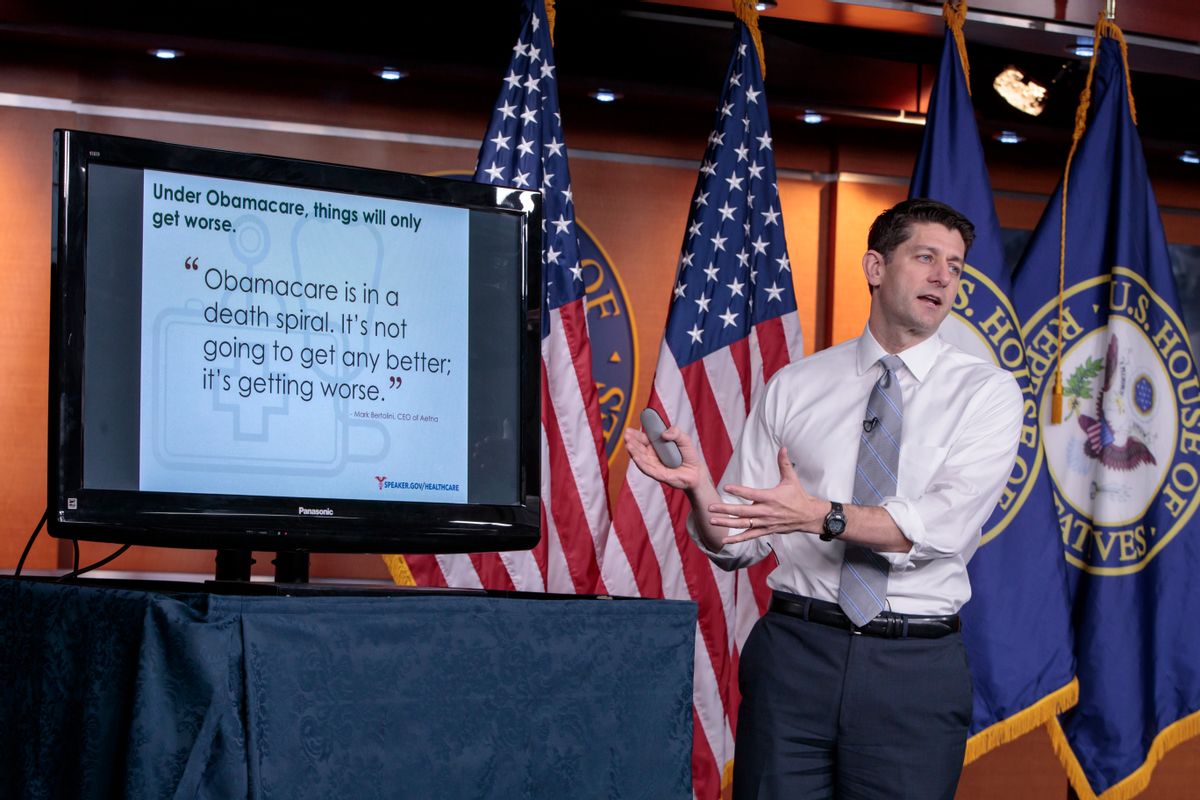Very soon Senate Republicans will have to decide what to do about Trumpcare. Their choice is severely limited.
The Congressional Budget Office has made it crystal clear that the House version of Trumpcare will cause 23 million Americans to lose their health coverage.
Which means that unless Senate Republicans repudiate their own Congressional Budget Office (whose director they appointed), they’ll have to either vote to take away healthcare for 23 million people, or come up with their own plan.
But if they try to come up with their own plan, they’ll soon discover there’s no way to insure those 23 million without (1) mandating that healthy people buy insurance, so that sick people with pre-existing conditions can afford it; and (2) keeping the existing taxes on rich people so that poor people can afford to buy health insurance.
In other words, they’ll be back to the Affordable Care Act.
Some Senate Republicans will no doubt claim that the Affordable Care Act can’t be sustained in its present form because private insurers are beginning to bail out of it.
That’s an awkward argument for Republicans to make because Republicans themselves have been responsible for this problem.
In 2010 Congress established “risk corridors” to protect insurers against uncertainties in setting the level of insurance premiums when they didn’t know who would sign up. Since then, Republicans have reduced or eliminated this backup. And the Trump Administration has done everything possible to generate even more uncertainty among insurers.
The obvious solution is to restore this backup and reduce uncertainty, in order to attract insurers back in.
This is surely better than repealing the Affordable Care Act and taking away health insurance coverage for 23 million people.
The only alternative is a single-payer plan – Medicare for all – that would provide universal coverage more cheaply than our present system, as embraced by most other advanced nations.
But Senate Republicans won’t get near a single payer.
Which means, as a practical matter, they have no choice. They may wrap it up in different garb and call it by a different name, but in the end the logic is unavoidable: They’ll have to strengthen the Affordable Care Act.

Shares